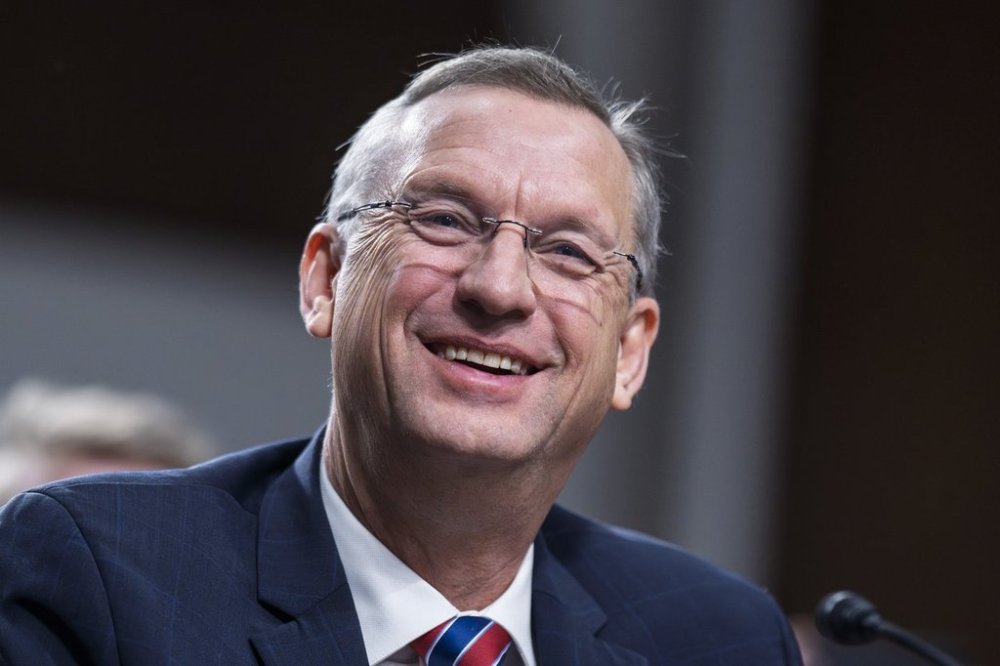Doug Collins confirmed as veterans affairs secretary as Trump Cabinet takes shape
Advertisement
Read this article for free:
or
Already have an account? Log in here »
We need your support!
Local journalism needs your support!
As we navigate through unprecedented times, our journalists are working harder than ever to bring you the latest local updates to keep you safe and informed.
Now, more than ever, we need your support.
Starting at $15.99 plus taxes every four weeks you can access your Brandon Sun online and full access to all content as it appears on our website.
Subscribe Nowor call circulation directly at (204) 727-0527.
Your pledge helps to ensure we provide the news that matters most to your community!
To continue reading, please subscribe:
Add Brandon Sun access to your Free Press subscription for only an additional
$1 for the first 4 weeks*
*Your next subscription payment will increase by $1.00 and you will be charged $20.00 plus GST for four weeks. After four weeks, your payment will increase to $24.00 plus GST every four weeks.
Read unlimited articles for free today:
or
Already have an account? Log in here »
Hey there, time traveller!
This article was published 04/02/2025 (321 days ago), so information in it may no longer be current.
WASHINGTON (AP) — The U.S. Senate on Tuesday confirmed Doug Collins as secretary of veterans affairs, putting the former congressman and Iraq War veteran at the helm of a department that provides crucial care to America’s veterans.
Collins, a former Air Force chaplain, was confirmed on a 77-23 vote, becoming the latest addition to President Donald Trump’s Cabinet.
“We must take care of our brave men and women in uniform, and Doug will be a great advocate for our active duty servicemembers, veterans, and military families to ensure they have the support they need,” Trump said in a November statement announcing Collins’ nomination.

The Department of Veterans Affairs manages a more than $350 billion budget and oversees nearly 200 medical centers and hospitals nationwide. It also manages national cemeteries and works closely with the Defense Department on personnel matters.
Collins has promised to cut regulations across the department and elevate the quality of care for veterans.
The challenges facing the department have evolved in recent years, with a younger generation of veterans bringing new health challenges from their service in the Iraq and Afghanistan wars.
“I’m an Iraq War veteran. I understand burn pits because I slept next to one for many months,” Collins said in his opening remarks during his January confirmation hearing. Collins said that he understand the challenges facing veterans today who “went time and time again, deployment after deployment” to conflict zones.
Collins served in the House of Representatives from 2013 to 2021. He has been an outspoken conservative since his time in the Georgia state legislature and was a close Trump ally during the president’s first term. He ran unsuccessfully for Senate in 2020 but lost the Republican primary to Kelly Loeffler, a major GOP donor who Trump has tapped to lead the U.S. Small Business Association.
Sen. Kevin Cramer, R-N.D., called Collins a “friend” who has “an engaging personality that attracts people to what he’s working on.”
“It’s not that they’re better doctors or better psychiatrists or better nurses or technicians. It’s that they’re empathetic,” Cramer said. “While they appreciate access to community care, they appreciate the empathy of a fellow veteran, and Doug brings that. But, guys, he’s a chaplain. I mean, come on, how perfect is that?”
Collins’ nomination sailed through the Senate Veterans’ Affairs Committee in a 18-1 vote. The lone dissenter, Sen. Mazie Hirono, D-Hawaii, said she was concerned that Collins would limit access to reproductive care like IVF or abortion for veterans.
Sen. Tammy Duckworth, D-Ill., said she had a productive conversation with Collins during his confirmation hearing but pressed him on whether he’d commit to working with Congress to “strengthen and refine” the department “rather than resorting to privatization.”
Collins said he would be focused on addressing wait times and increasing preventative care.
